The New and Updated Falcony APIs
Involvement platforms are not one-size fits all solutions for every use case, but the customers need to be able to customise them without coding and they need to integrate with other solutions natively without massive investments.
That’s why at Falcony we have always looked at each integration as an opportunity to expand the potential of the entire platform. We are now excited to announce that we have just launched NOT ONE, NOT TWO, NOT THREE, but FOUR new APIs to help you and your team bring all required data to Falcony.
This is the second blog post from our recent launch event (link goes to YouTube) held on the 1st of March 2023. The first blog post about audit scheduling can be read here: Falcony Launches The Audit Scheduling Add-On.
Why are APIs so important?
Let’s put this into a bigger picture first. Below is a 2-by-2 matrix of how we at Falcony position ourself with other options in the market. Our product benchmark in involvement has always been WhatsApp. It is highly involving (most people use it more than they use toothbrush), and it works for many types of communication. However it isn’t very enterprise compatible with difficulties to customise it, concerns about the security and you can easily get it to integrate with your needed infrastructure.
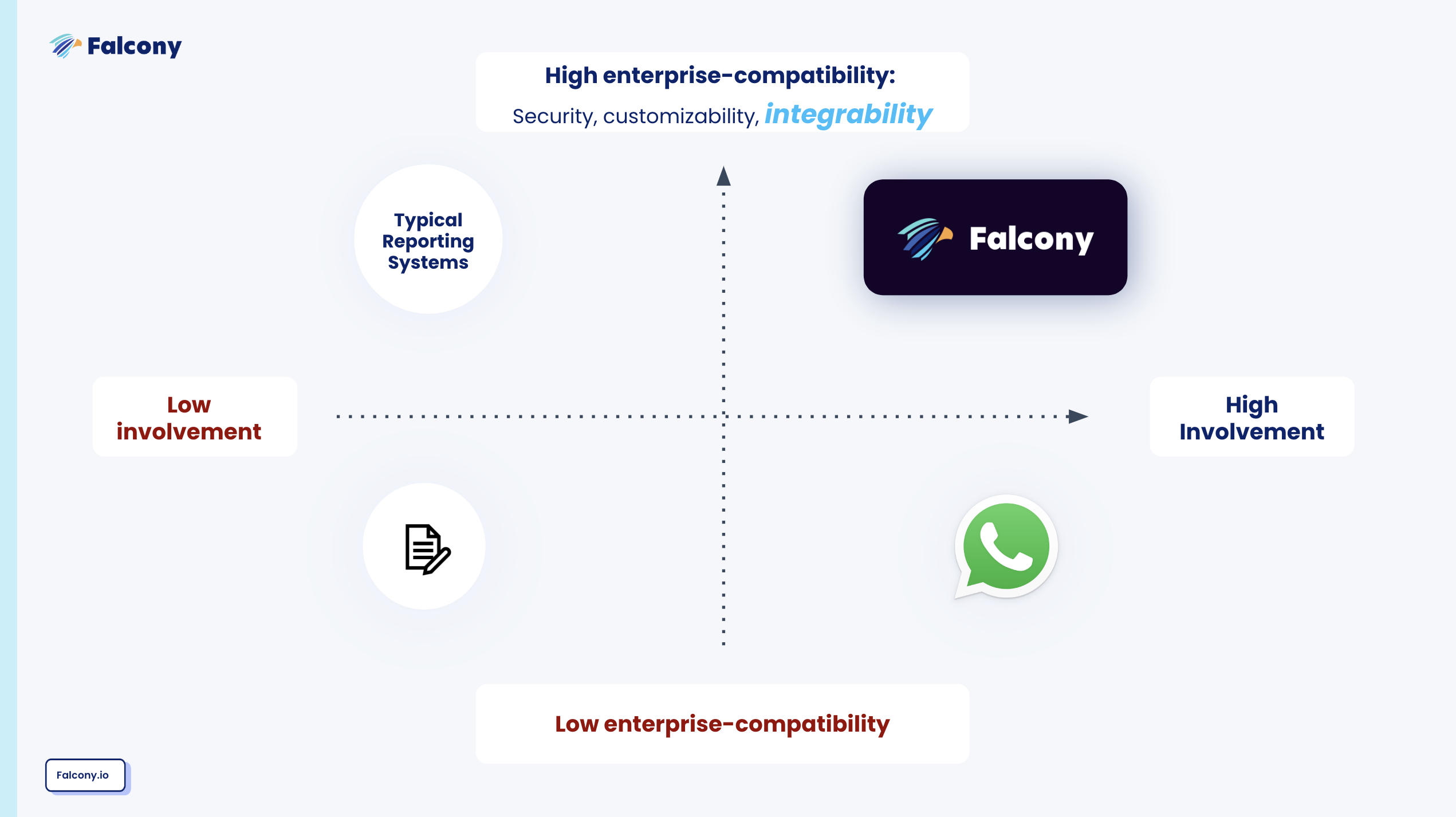
Then again the typical reporting systems are often highly enterprise compatible but not so involving, often covering only a single function, like safety or facility management, making it harder for end-users to pick which system to use for which use case.
But an important aspect of enterprise compatibility, especially for multiple functions and use cases, is integrability. A system like Falcony, must be able to speak with multiple systems, which is exactly what we are looking to solve with our new APIs. Here’s an overview of few of the most common integrations we currently provide, categorised into different system categories.
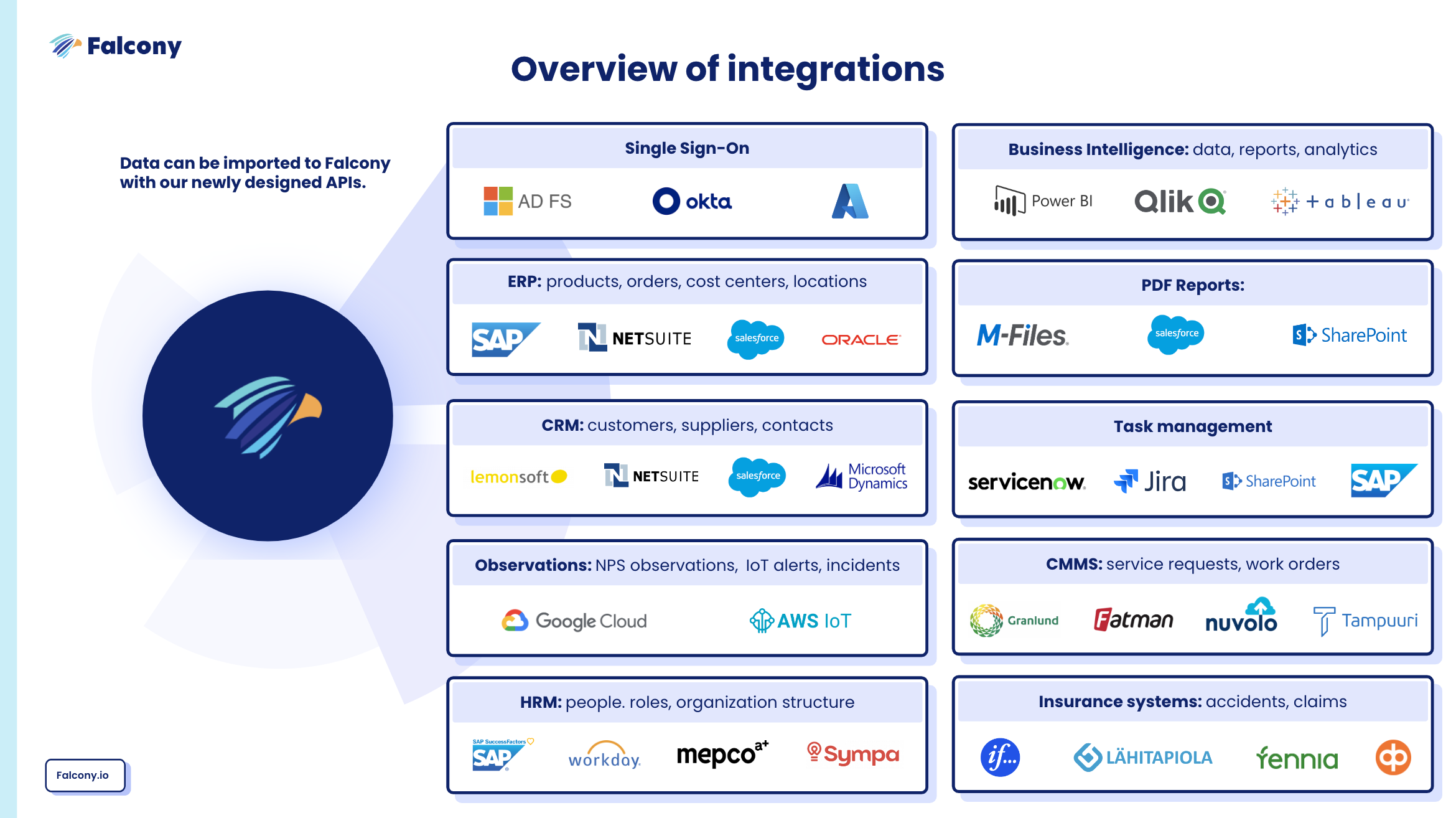
Knowing which system integrates with Falcony helps to some degree but also the more high-level perspective if these integrations use APIs (“Application programming interface”) or not and what kind of data can be imported or exported through it.
The four new APIs
We have developed four new APIs:
- Places API
- Users API
- Data sources API
- Open link API
Each of them has been created for importing data to different parts of Falcony platform. Some of the names might be self-explanatory: places API allows to update places in Falcony, Users API to create and update users and user rights. Data sources API enables having a searchable list of items for observation questions and Open Link API to automatically create observations from external events.
This is the high-level, let’s now dig deeper into more specific ways to use the APIs and integrations in practice.
Places API
With Places API, Falcony be easily plugged into customers ERP system or any other master data system where locations or cost centers are managed and updated. When this integration is used, the customer admins don’t need to manually update the places inside Falcony, but instead all the information related to places is automatically kept up-to-date via this integration.
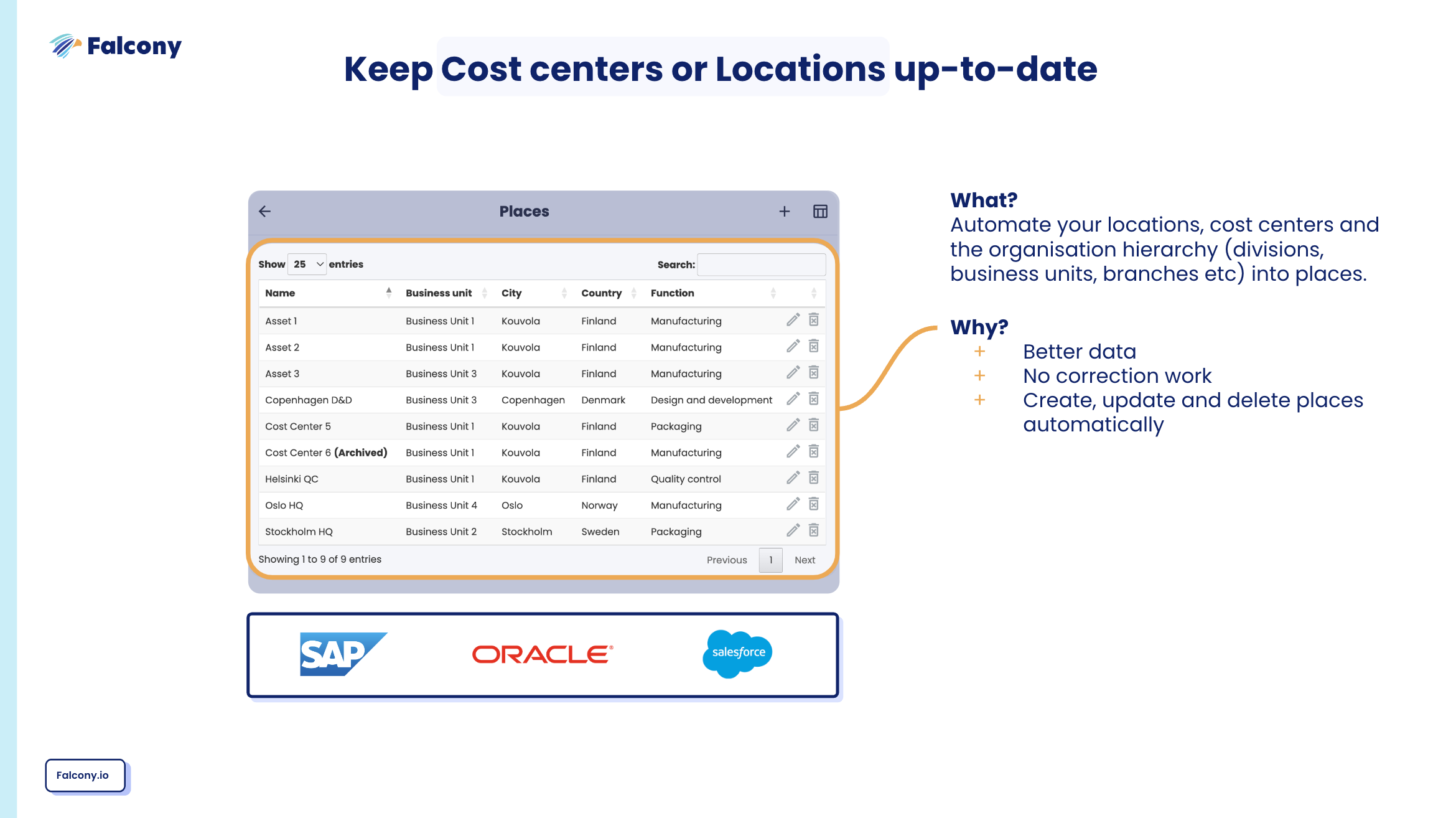
Users API
Just like places, the next integration is about automating the creation, updating and deletion of users and their access rights. Usually our customers have all their employees in a single centralized HR system. With our users API it is possible to reflect all changes in the HR system to Falcony. This means that when a new employee gets hired he gets automatically added to Falcony, when he gets promoted he gets additional access rights in Falcony and finally when he decides to leave the company, he is automatically removed from Falcony.
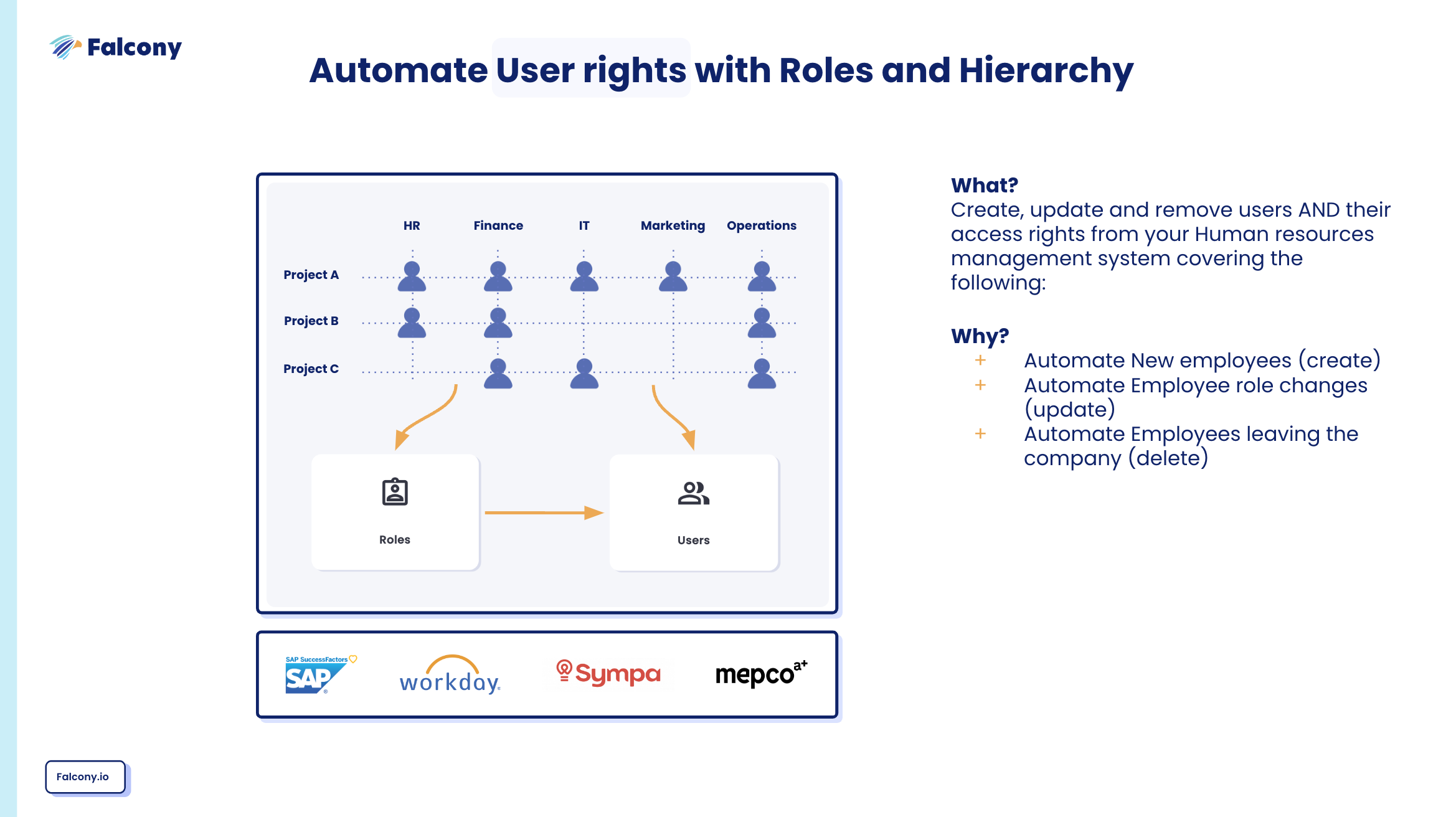
Data sources API
Data sources API allows the select questions inside Falcony to be searchable and contain even millions of items. It is possible to load the items for these questions from data sources outside Falcony. Let’s go through three examples:
1. Customers
One can report for example customer claims where the customer is chosen from a searchable list of customers. The customer list is kept up-to-date from a CRM system. This way the claims are always linked to the right customers.
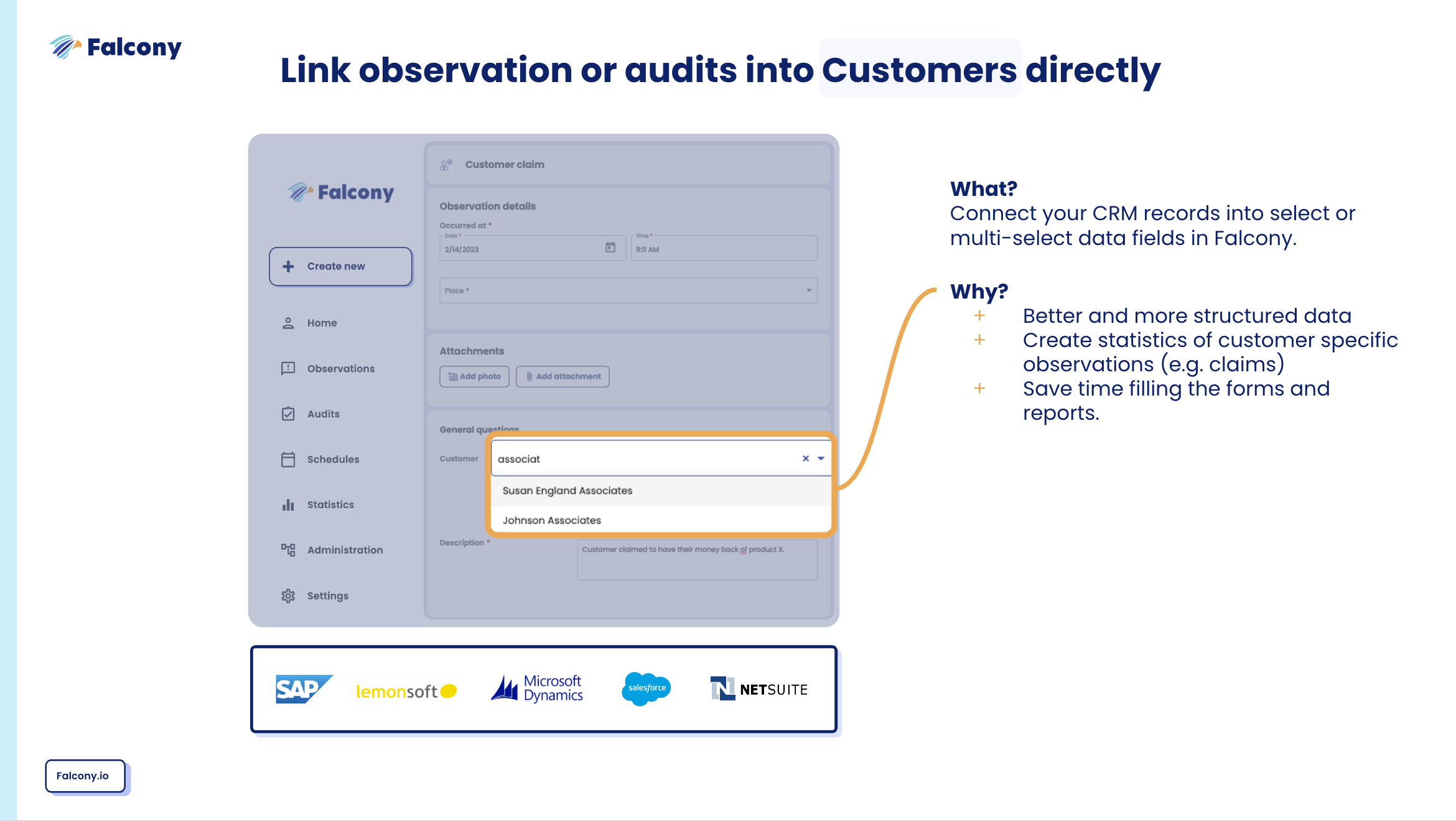
2. Product and order records
One can report defects in customer orders where the order and product are chosen from searchable lists of orders and products. Again both of these lists are kept up-to-date in real-time from the customer's ERP or order management system. This same appliers well for loss prevention incidents such as thefts or delivery problems.
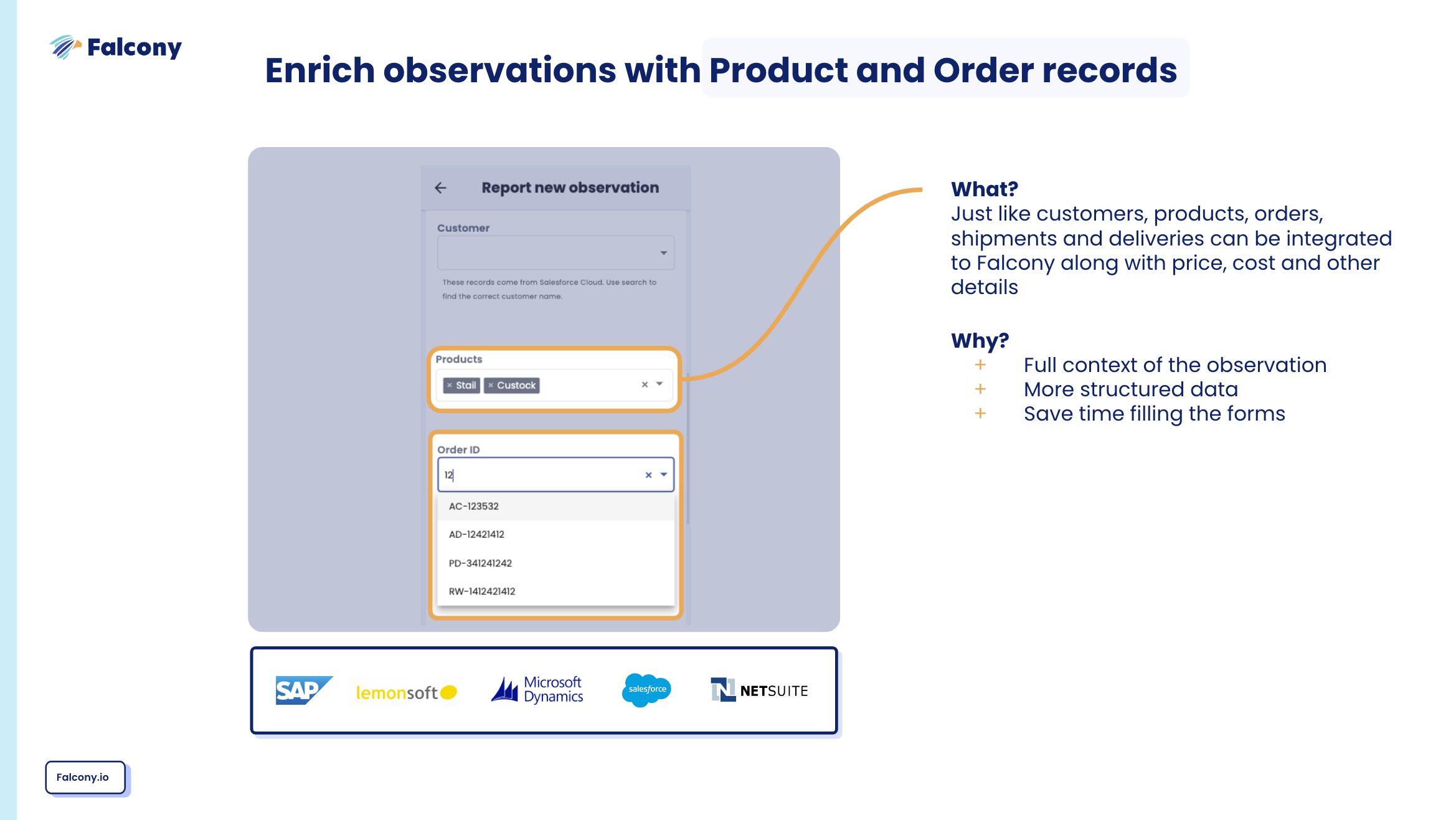
3. Suppliers
In the third example one can report incidents, claims or other observations related to Suppliers and choose a supplier from a list that is automatically updated from customer’s CRM or supplier management system.
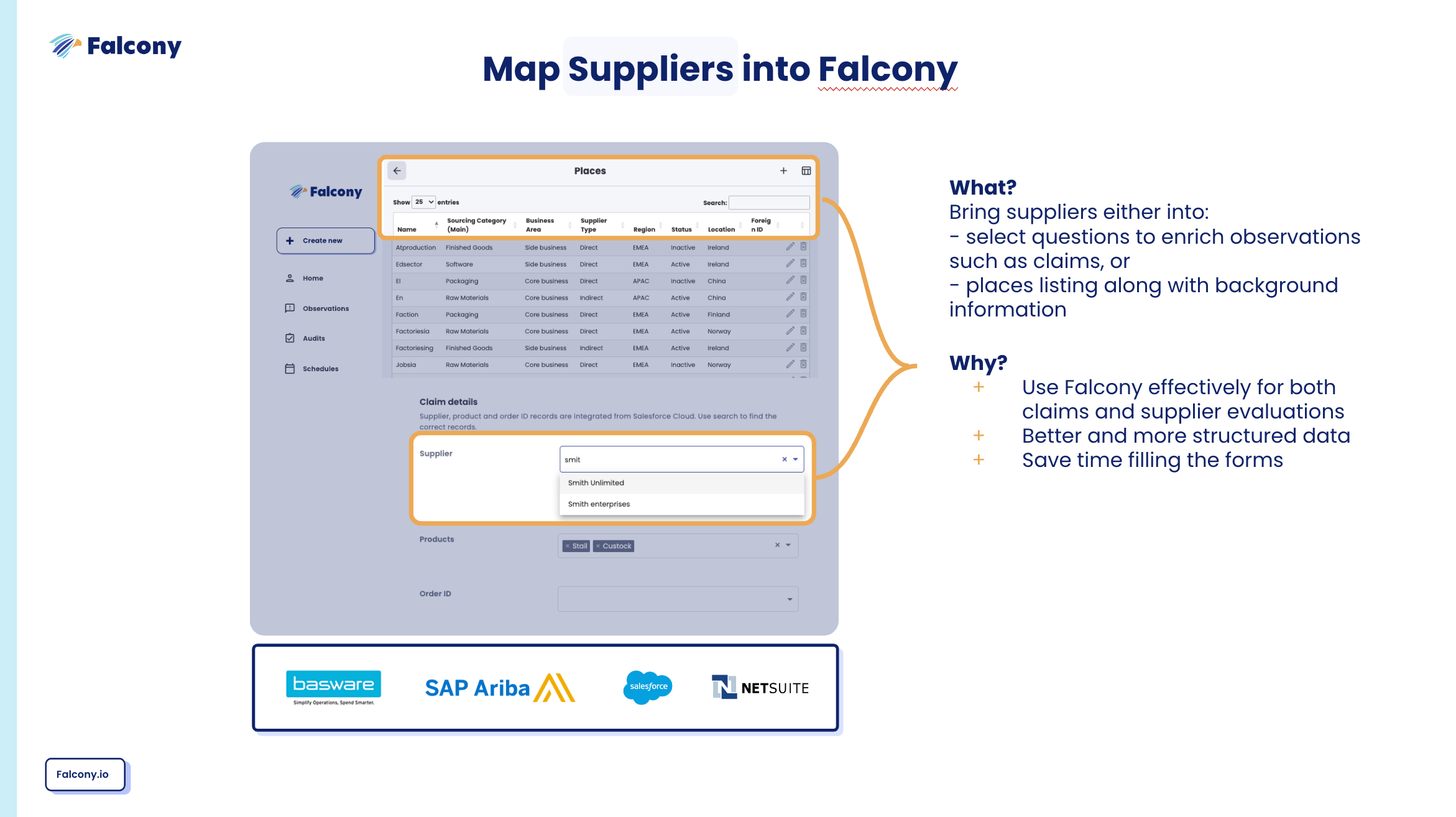
Like said, these three are technically working the same way, but they use different data sources to keep the list of options updated.
Open link API
And finally we have the open link API. This integration allows you to create observations into Falcony from external events. Couple of examples include sensor generated alerts or NPS survey scores under a certain threshold. The benefit is that this way you can track all the incidents inside Falcony, involving the relevant participants and assignees and use the flexible workflows of Falcony for fixing the issues and finding root causes.
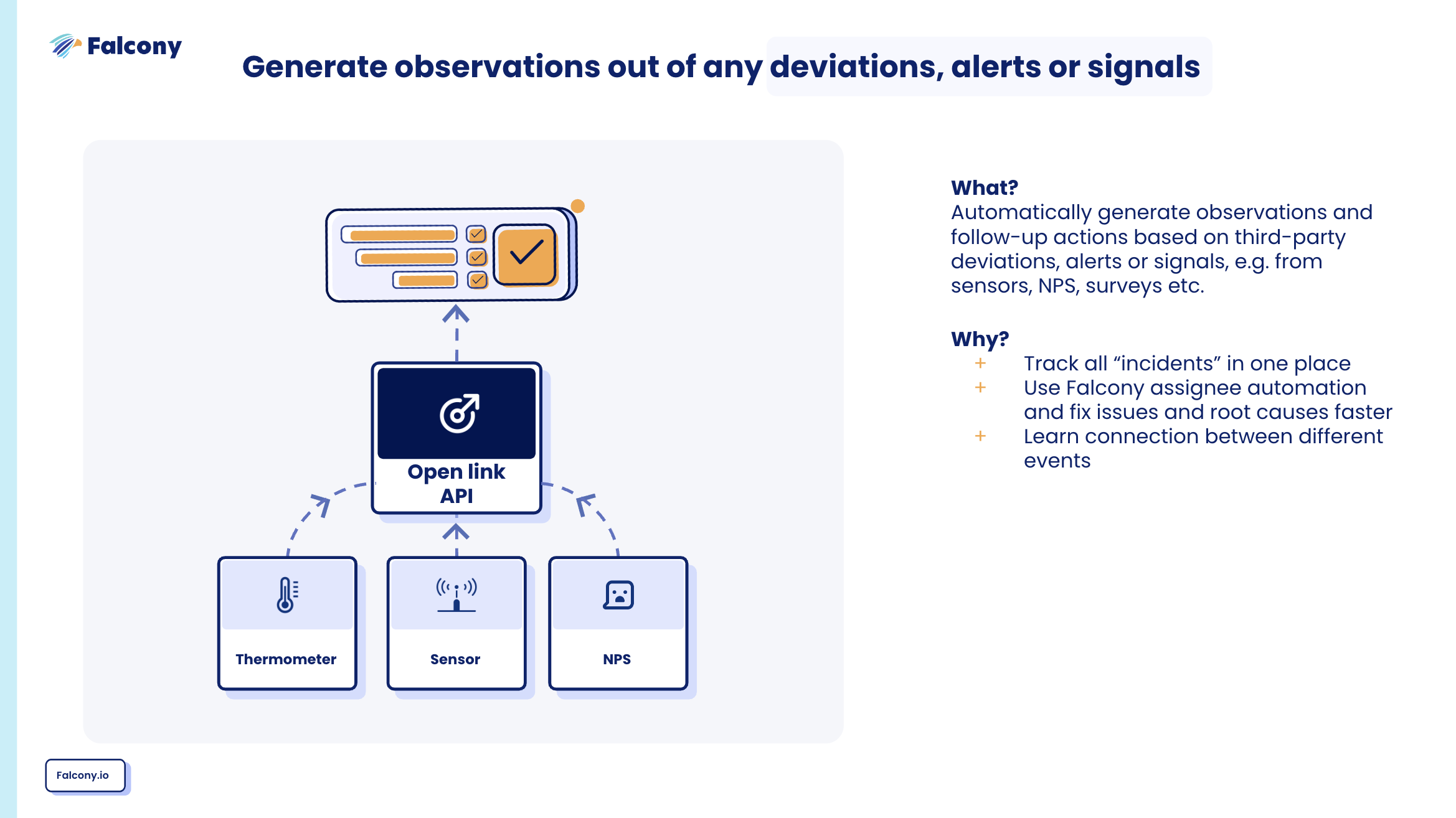
Conclusion
What we didn’t now go through in detail are the integrations related to exporting data out of Falcony into for example business intelligence, task management, facility management or insurance systems. Just so you know, these are all existing integrations and available for you just as the APIs went through in this blog.
We know that some people still have a persisting idea that integrations are too big and tedious to even consider but our suggestion is to simply contact us and have a chat. It might actually be less work than you think and the cost of you spending time updating these things manually is probably even greater.
Are you interested to discuss how our new APIs and integrations could benefit your organisation? Contact us and let's make it happen!
We are building the world's first operational involvement platform. Our mission is to make the process of finding, sharing, fixing and learning from issues and observations as easy as thinking about them and as rewarding as being remembered for them.
By doing this, we are making work more meaningful for all parties involved.
More information at falcony.io.

Related posts
Product update: Deleted items, Datatables and Observation lifetimes
As we are on a mission to help companies involve their extended workplace, we are pleased to...
Falcony's new Idea Generation solution helps you get 50x more ideas
Ideas. Initiatives. Suggestions. They are all types of observations that most companies generate...
Falcony Launches The Audit Scheduling Add-On
For our auditing customers, one of the most requested improvements we’ve ever received has been...



